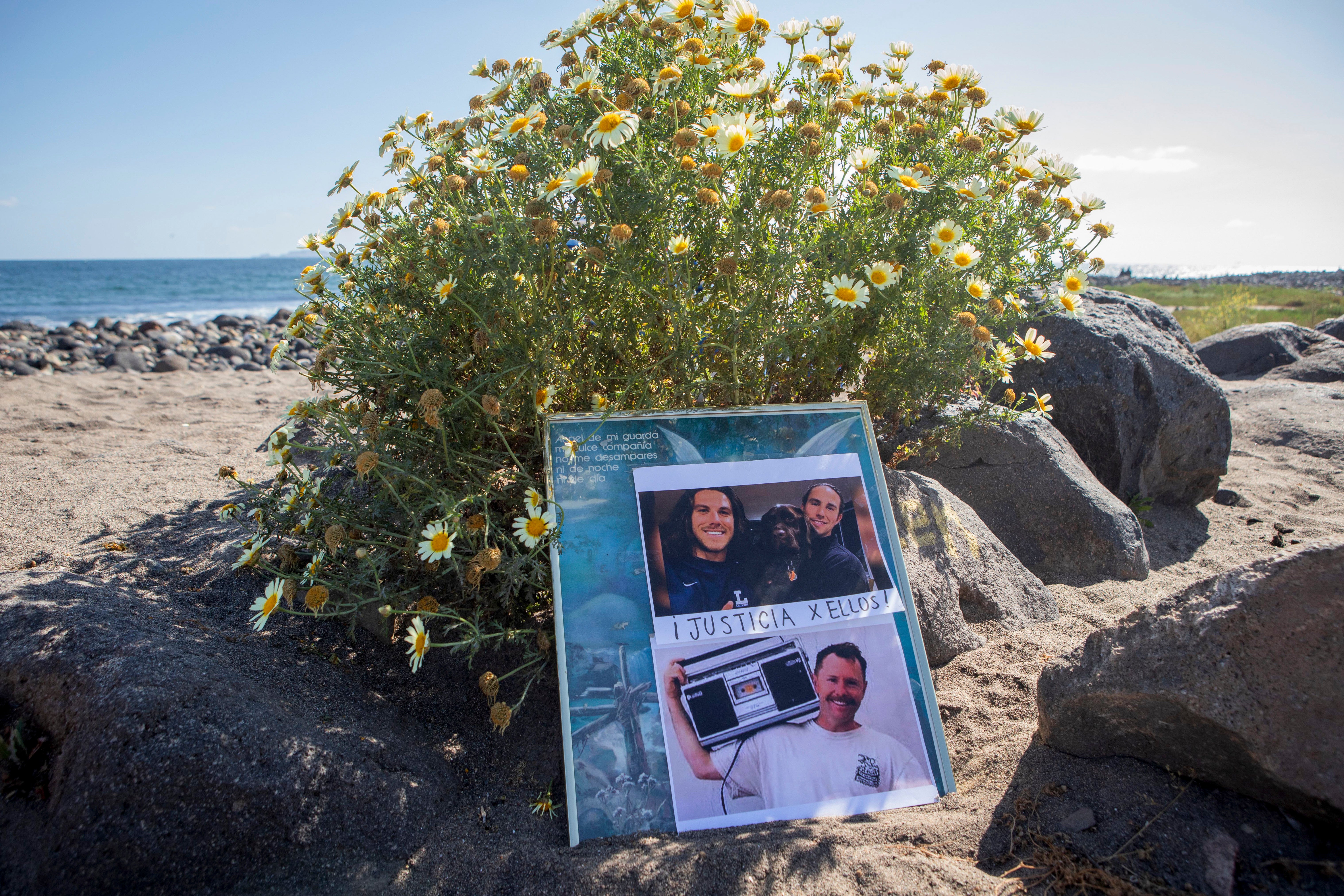How a beach trip in Mexico's Baja California turned deadly for surfers from Australia and the US
Two Australians and an American were doing what they loved on the stunning, largely isolated stretch of Baja California’s Pacific coast

Your support helps us to tell the story
From reproductive rights to climate change to Big Tech, The Independent is on the ground when the story is developing. Whether it's investigating the financials of Elon Musk's pro-Trump PAC or producing our latest documentary, 'The A Word', which shines a light on the American women fighting for reproductive rights, we know how important it is to parse out the facts from the messaging.
At such a critical moment in US history, we need reporters on the ground. Your donation allows us to keep sending journalists to speak to both sides of the story.
The Independent is trusted by Americans across the entire political spectrum. And unlike many other quality news outlets, we choose not to lock Americans out of our reporting and analysis with paywalls. We believe quality journalism should be available to everyone, paid for by those who can afford it.
Your support makes all the difference.Two Australians and an American were doing what they loved on the stunning, largely isolated stretch of Baja California's Pacific coast. Their last images on social media showed them sitting and gazing at the waves, contemplating the breaks.
What happened to end their lives may have been as random as a passing pickup truck full of people with ill intent. The surfers were shot in the head, their bodies dumped in a covered well miles away. How it unfolded was the stuff of nightmares.
Brothers Jake and Callum Robinson from Australia and American Jack Carter Rhoad had apparently stopped to surf the breaks at Punta San José, about 50 miles (80 kilometers) south of Ensenada. They were attacked there on April 28 or 29.
As soon as police arrived at their last known camp site, it was clear that something had gone violently wrong.
There were bloodstains and marks “as if heavy objects had been dragged," leading to suspicions of an attack, the Baja California state prosecutor's office said in an attempt to reconstruct the scene.
Chief state prosecutor María Elena Andrade Ramírez told a press conference on Sunday that the killers apparently drove by, saw the foreigners’ pickup truck and wanted to steal its tires and other parts.
Such was the banality of evil, she said, that “they were not attacked because they were tourists. ... The evidence suggests they (the killers) did not know where they were from.”
The foreigners surely resisted, she said. “And these people, the assailants, took out a gun, and first they killed the one who was putting up resistance against the vehicle theft, and then the other two came along and joined the fight to defend their property and their companion who had been attacked, and they killed them too.”
Andrade Ramírez said the reconstruction of events was based on the forensic examiner's reports, noting all three had bullet wounds to the head.
There was a hurried attempt to destroy evidence. The foreigners’ tents were apparently burned. The pickup truck was driven miles away and burned. The assailants' truck was later found with a gun inside.
Then, at “a site that is extremely hard to get to,” the bodies were dumped into a well about 4 miles (6 kilometers) away. Investigators were surprised when, underneath the bodies of the three foreigners, a fourth body was found that had been there much longer.
"They had to have previous knowledge of it," Andrade Ramírez said of the attackers, acknowledging the possibility they were behind the previous killing.
The well had been covered with boards. “It was literally almost impossible to find it,” Andrade Ramírez said. It took two hours to winch the bodies out.
Prosecutors have said they were questioning three people in the killings. Two were caught with methamphetamines. One of them, a woman, had one of the victims' cellphones when she was caught. Prosecutors said the two were being held pending drug charges but continue to be suspects in the killings.
A third man was arrested on charges of a crime equivalent to kidnapping, but that was before the bodies were found. It was unclear if he might face more charges.
The third man was believed to have directly participated in the killings. In keeping with Mexican law, prosecutors identified him by his first name, Jesús Gerardo, alias “el Kekas,” a slang word that means quesadillas, or cheese tortillas.
Andrade Ramírez said he had a criminal record that included drug dealing, vehicle theft and domestic violence, adding, “We are certain that more people were involved.”
She emphasized that she could not discuss anything related to the suspects, or their possible statements, because that was not allowed under Mexican law and might prejudice the case against them.
Andrade Ramírez noted that the victims' families said the brothers and Rhoad had come many times to the seaside spot and never had any problem. This time, however, "there was no way to ask for help when the attackers showed up.”